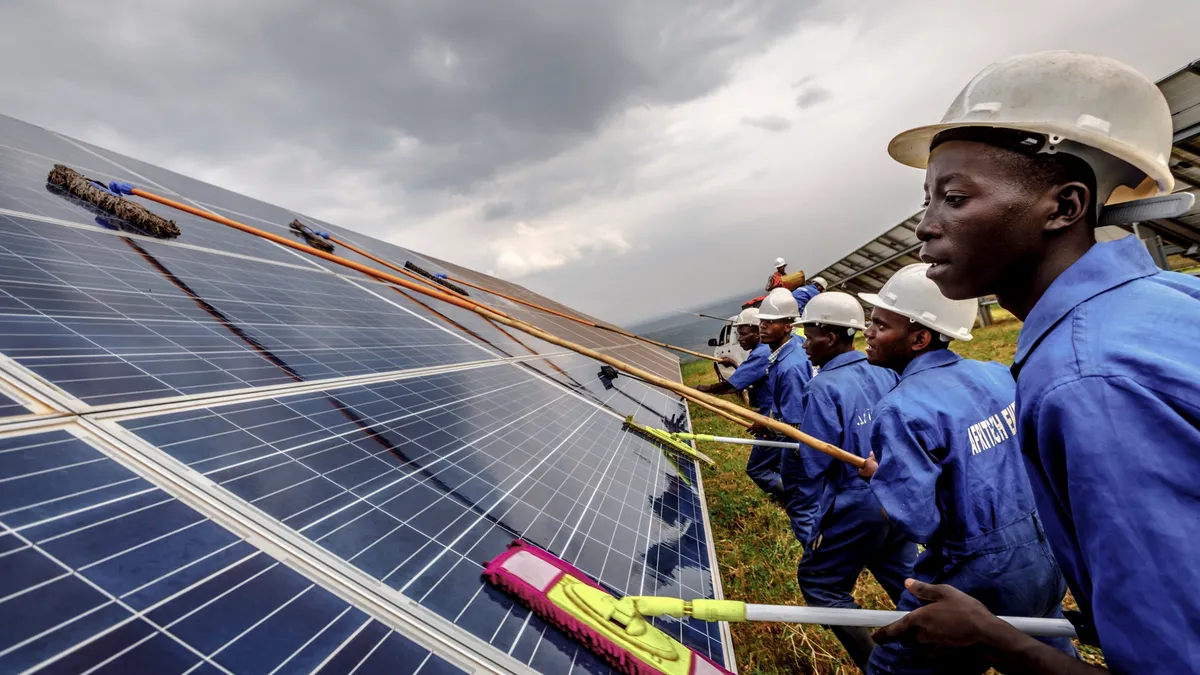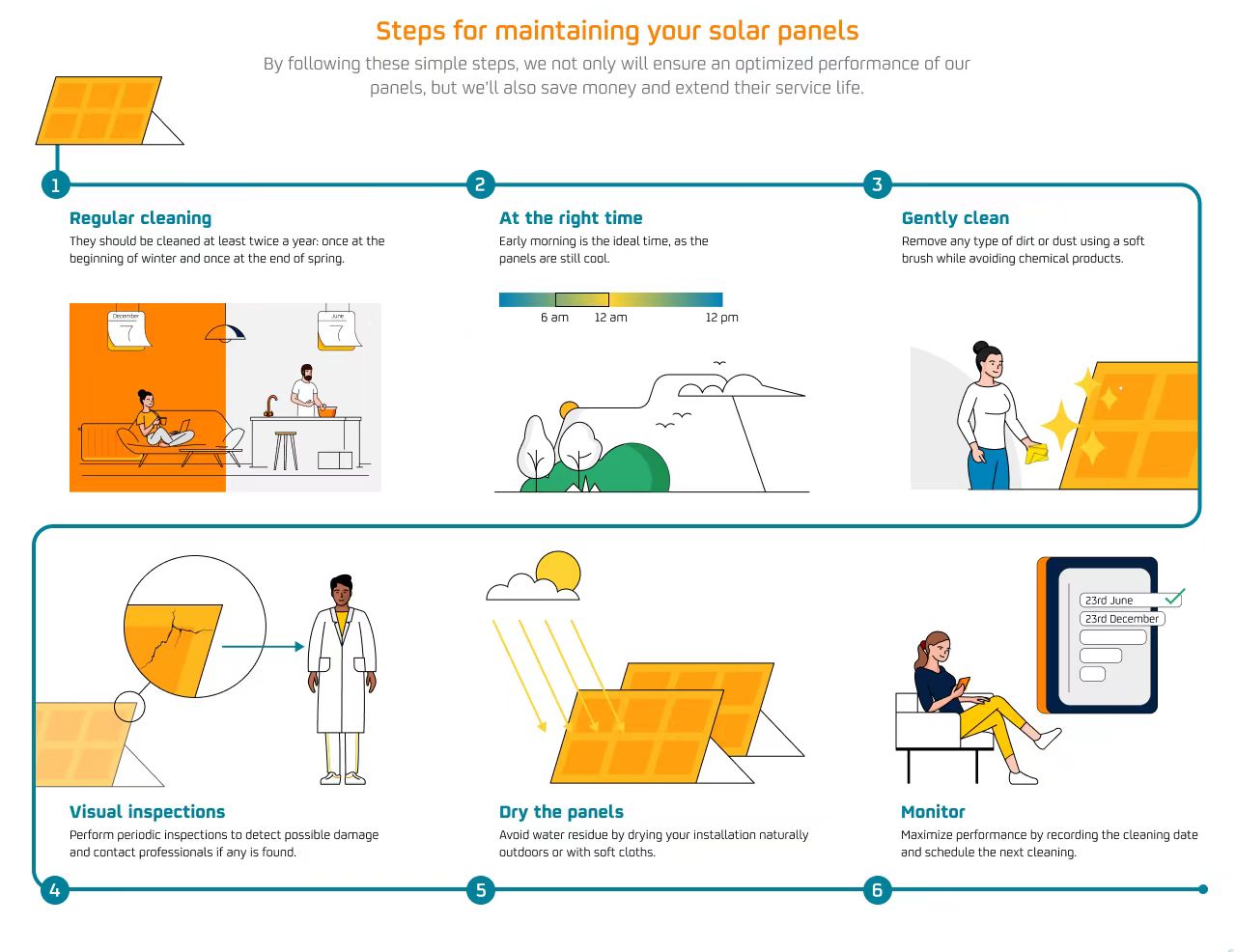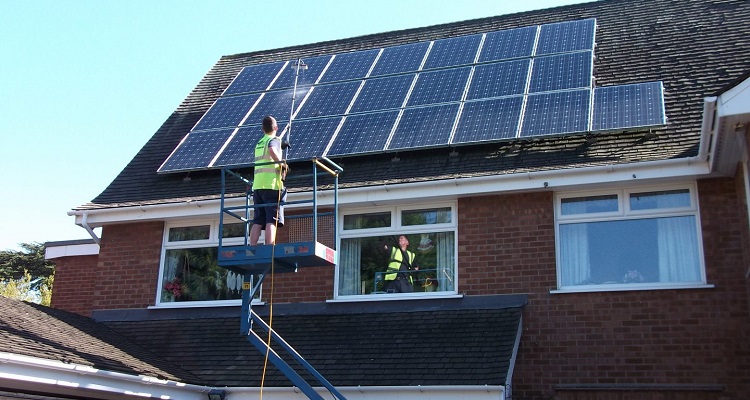Owning solar panels is a huge investment, and in order to ensure your long-term benefits, solar cell maintenance is very important. Read on for answers to the most common questions of cleaning and maintenance of solar panel.

Do Solar Panels Need to Be Maintained
Solar panels usually require very little maintenance, and even then, due to their outdoor location and constant exposure to all kinds of weather conditions, regular cleaning and maintenance of solar panel are still required to keep your system functioning properly.
How Often Should Solar Panels Be Cleaned
To ensure that your system runs efficiently and safely, we recommend that you maintain it two to four times a year. The most common problem with solar panels is the accumulation of dirt and debris, and the longer the time, the more accumulated material, the more difficult it is to clean. Spring and fall are the best times to do maintenance work, and in addition to cleaning the surface of the solar cell, you’ll also need to check the wires and connections to make sure they’re in working order. There may even be small animals that gnaw on them without you noticing.
How Do You Maintain Solar Panels
Regular cleaning
In order to keep your solar panels in good condition, you must clean them at least twice a year, and it is recommended to set the cleaning time for late fall and early winter. If they are installed in areas with high concentrations of dust, pollen or dirt, it is recommended to increase the number of regular cleanings.
Inspect for damage
Check the solar panel regularly for any signs of damage, such as cracks, scratches, or corrosion. Inspect frames, glass surfaces and electrical components for wear and tear. If you find any damage, contact a professional for solar panel repairing.
Prune surrounding vegetation
Trim trees, shrubs, and other vegetation near solar panels to prevent occlusion. Occlusion significantly reduces the energy generation of the panel, so it is important to keep the surrounding area clean.
Monitoring performance
The performance of the solar panels is regularly monitored to ensure that they produce the desired amount of energy. Use the monitoring software or application provided by the manufacturer to track energy generation and detect if there are any problems.
Professional inspection
Regular inspections by qualified technicians to assess the overall condition of the solar panel system. They can detect any potential problems early and recommend necessary solar panel repairing or maintenance.

The Importance of Proper Maintenance of Solar Panel
Proper maintenance of solar panel systems is critical to ensuring their efficiency and longevity, which can increase electricity generation by around 15%. With regular inspections and proper cleaning, you can ensure that your system is operating at its best, resulting in increased energy production and long-term economic benefits for your home or business.
The Cost of Maintenance of Solar Panels
The cost of maintenance of solar panels is generally low, about $150 for annual inspections and $150 for cleaning, and some solar panel companies offer free mobile apps to monitor usage.
On top of that, you also need to consider the additional solar panel repairing and maintenance costs caused by the inspection. Solar panel warranties can cover some of the cost of maintenance of solar panels with a performance guarantee, but having your panel serviced by a professional can cost between $140 and $180 per year.
How to Clean Solar Panels
Dirt, debris, dust, and other items can stain solar panels, and if too much accumulates, it can start to affect the energy produced by the solar panels, so your solar panels need to be cleaned regularly.
Be sure to turn off the solar system before cleaning, and ensure that the cleaning work is carried out in the early morning, when the panels are fresh. At the same time, avoid cleaning solar panels on sunny days, because water evaporates quickly, so smudges may be left, and the combination of hot and cold water can create thermal stress, which can damage the equipment.
When cleaning, it is recommended to use pure, high-quality water, preferably distilled or deionized water, to avoid forming mineral stains or deposits on the surface of the solar panel.
Try to use a mild cleaner that is compatible with the materials used in the panel, such as glass and protective coatings. Avoid harsh chemicals such as abrasive cleaners or solvents, as they may corrode the material, scratch the photovoltaic cell, or leave residue.
A soft brush can be used to remove dirt from the solar panel, but try not to press too hard to avoid scratching or damaging the surface. If you use a sponge or cloth, choose microfibers because they remove dirt and debris without damaging the surface of the solar panel.
For solar panels with heavy deposits, they can be cleaned by spraying them with warm water from a garden hose and wiping them down with a non-abrasive microfiber cloth.
If you clean them on the roof, remember to use a harness to prevent falls to clean them safely. If cleaning from a ladder, be careful to prevent falls, preferably a telescopic pole with a microfiber cloth can help you safely clean the solar panels on the ground.

Can You Monitor the Health of Your Solar Panels
To ensure that your system is in good operating condition, you can monitor the output of your solar panels, and some solar companies have mobile apps that show you the energy production of each panel in your system in real time. This gives you an accurate picture of how various external factors affect the performance of the panels and how well they remain efficient throughout their life cycle.
If your solar company is unable to monitor in real time, then you can purchase a solar monitor or find a solar panel monitoring application. When the panel is damaged or malfunctioning, the monitoring system will also alert you so that you can solve your solar panel repairing and replacement problems in time.
How Does Severe Weather Affect Solar Panels
The solar panels are designed to be very durable, and the high quality of the solar panel installation enables the photovoltaic system to work properly in bad weather. Most can withstand winds of up to 140 miles per hour, and the best solar panels can also withstand hail storms.
The type of weather that most often affects panels is heat, and high temperatures can cause the efficiency of solar panels to decrease, losing about 1% for every degree of increase in panel efficiency when the temperature exceeds 77°F (or 25°C).
What to Do With Unusable Solar Panels
The disposal of unused solar panels requires appropriate methods and measures to minimize resource waste and environmental pollution.
Because solar panels contain valuable materials such as silicon, glass, and aluminum, most solar panel components can be recycled. Some discarded solar panels can be repaired and remanufactured to bring them back into use. This requires specialized technology and equipment, but can extend the life of the panels and reduce the need for new resources.
Discarded solar panels can contain harmful substances, such as lead and cadmium, so they need to be safely disposed of to prevent harm to the environment and human health. This includes proper storage, transport and disposal processes to ensure that waste does not pollute the surrounding environment.
Conclusion
All in all, the maintenance of solar panel is very easy. If you find a buildup of dust, debris, or snow, a quick cleaning will ensure that your panel is running efficiently. Also, make sure you get a panel with a good warranty, so that if your panel does break, it will be replaced and will help you save on your cost of maintenance of solar panels.
If you are planning to add Solar products to your home or business, please fill out the simple form below to get in touch with us at GYCX Solar. Investing in Solar panels is a long-term commitment, so partnering with a trusted energy management company is essential, and GYCX Solar’s innovative scientific approach gives you energy management solutions that exceed expectations.
